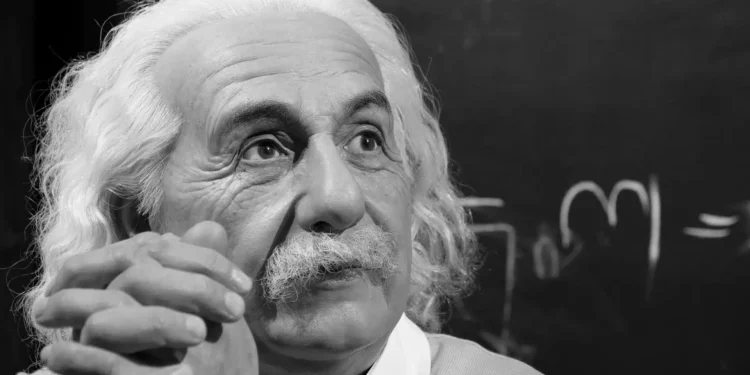Scientists are curious minds who explore the mysteries of our universe. They ask questions, conduct experiments, and make discoveries that can change the way we understand the world. This article will take you on a journey through the world of scientists, explaining what they do, why they are important, and how they contribute to our lives. You’ll discover the different types of scientists, learn about their research methods, and find out how you can become one, too!
What is a Scientist?
A scientist is a person who studies the natural world. They use observation, experimentation, and analysis to understand how things work. Scientists work in various fields, including biology, chemistry, physics, and environmental science. They ask questions like, “What is the structure of an atom?” or “How do plants grow?” By seeking answers, scientists contribute to our knowledge and improve our lives.
Scientists often have a strong background in mathematics and the sciences. They use their knowledge to conduct experiments and analyze data. For instance, a biologist might study the effects of pollution on a specific animal species, while a physicist might explore the principles of motion and energy.
In the United States, scientists play a crucial role in advancing technology, improving health care, and addressing environmental challenges. Their work is essential for solving problems and finding solutions that benefit society.
Why Do We Need Scientists?
Scientists are essential for many reasons. They help us understand the world around us, develop new technologies, and improve our quality of life. Here are some key reasons why we need scientists:
- Problem Solving: Scientists tackle global challenges, such as climate change, disease outbreaks, and food security. By researching these issues, they develop solutions that can help us address them effectively.
- Innovation: Scientific discoveries often lead to new inventions and technologies. For example, the development of vaccines has saved millions of lives and improved public health.
- Education: Scientists educate the public about important issues. They communicate their findings through publications, lectures, and community outreach. This helps people understand scientific concepts and make informed decisions.
- Economic Growth: The scientific community contributes significantly to the economy. Research and development lead to new industries, job creation, and increased competitiveness on a global scale.
In summary, scientists play a vital role in advancing knowledge and improving our lives in numerous ways.
Different Types of Scientists
There are many types of scientists, each specializing in a specific field of study. Here are a few prominent categories:

Biologists
Biologists study living organisms, their interactions, and their environments. They investigate various aspects of life, from the smallest bacteria to complex ecosystems. Biologists often conduct experiments in labs or field studies in nature. For instance, a marine biologist might explore ocean habitats to understand marine life better.
Chemists
Chemists focus on the composition, structure, and properties of substances. They study how different elements interact and create new materials. Chemists are essential in developing pharmaceuticals, environmental solutions, and everyday products. Their work helps us understand how chemicals affect our health and the environment.
Physicists
Physicists study matter, energy, and the fundamental forces of nature. They explore concepts like gravity, electromagnetism, and quantum mechanics. Their research leads to innovations in technology, such as lasers and nuclear energy. Physicists often work in laboratories, universities, and research institutions to uncover the laws governing the universe.
How Do Scientists Conduct Research?
Scientists follow a systematic approach when conducting research. This process typically includes several steps:
- Observation: Scientists observe phenomena and gather information. They might notice something unusual in nature or a pattern in data.
- Hypothesis: Based on their observations, scientists form a hypothesis, which is a testable explanation for the phenomenon they are studying.
- Experimentation: Scientists design and conduct experiments to test their hypotheses. This may involve collecting data, performing calculations, or creating models.
- Analysis: After gathering data, scientists analyze the results. They look for patterns and relationships to determine whether their hypothesis is supported or rejected.
- Conclusion: Finally, scientists draw conclusions from their research. They communicate their findings through reports, presentations, and peer-reviewed journals.
This methodical approach allows scientists to ensure that their findings are reliable and can be replicated by others.
Famous Scientists Who Changed the World
Many scientists have made groundbreaking contributions that have significantly impacted our lives. Here are a few notable figures:
- Albert Einstein: Known for his theory of relativity, Einstein revolutionized our understanding of time, space, and energy. His work laid the foundation for modern physics and has influenced countless technological advancements.
- Marie Curie: A pioneer in the study of radioactivity, Curie was the first woman to win a Nobel Prize. Her research in chemistry and physics opened new doors in medicine and energy.
- Isaac Newton: Newton’s laws of motion and universal gravitation changed the way we understand the physical world. His work in mathematics and physics laid the groundwork for classical mechanics.
- Charles Darwin: Darwin’s theory of evolution by natural selection transformed our understanding of biology. His observations of species in the Galápagos Islands led to groundbreaking ideas about how life adapts and evolves.
These scientists, among many others, have made significant contributions to our understanding of the universe and have inspired generations of researchers.
The Future of Science
The future of science is bright and full of possibilities. Advances in technology, such as artificial intelligence and biotechnology, are opening new frontiers for research. Scientists are exploring new ways to address global challenges like climate change, health care, and renewable energy.
In the coming years, we can expect to see exciting developments in areas such as:
- Space Exploration: Scientists are investigating the possibility of life beyond Earth, exploring planets, moons, and asteroids. Missions to Mars and beyond could yield valuable insights about our solar system.
- Genetic Engineering: Advances in genetics are leading to breakthroughs in medicine and agriculture. Scientists are working on gene therapies to treat diseases and improve crop yields.
- Environmental Science: Addressing climate change and conserving biodiversity are critical challenges. Scientists are developing innovative solutions to protect ecosystems and promote sustainability.
How Can You Become a Scientist?
If you’re interested in becoming a scientist, here are some steps you can take:
- Education: Start by focusing on your education. Take science and math classes in school and consider pursuing a degree in a scientific field at a university.
- Experience: Get hands-on experience through internships, research projects, or volunteer opportunities. This will help you gain valuable skills and knowledge.
- Networking: Connect with scientists and professionals in your field of interest. Attend workshops, conferences, and seminars to meet people and learn more about their work.
- Stay Curious: Keep asking questions and exploring the world around you. Read books, watch documentaries, and engage in discussions about scientific topics.
By following these steps, you can embark on a rewarding career as a scientist.
How Do Scientists Conduct Research?
As mentioned earlier, scientists follow a systematic approach to research. This method ensures that their findings are credible and can be replicated by others. The scientific method is crucial for the advancement of knowledge and the development of new technologies.
Biologists
Biologists are an essential part of the scientific community. They explore the intricacies of life, studying everything from microorganisms to ecosystems. By understanding how living organisms interact with their environment, biologists contribute to fields such as medicine, agriculture, and conservation.
What is a Scientist?
In summary, a scientist is a curious individual who seeks to understand the natural world. Through observation, experimentation, and analysis, they contribute to our knowledge and improve our lives. Scientists play a vital role in solving global challenges and advancing technology.












